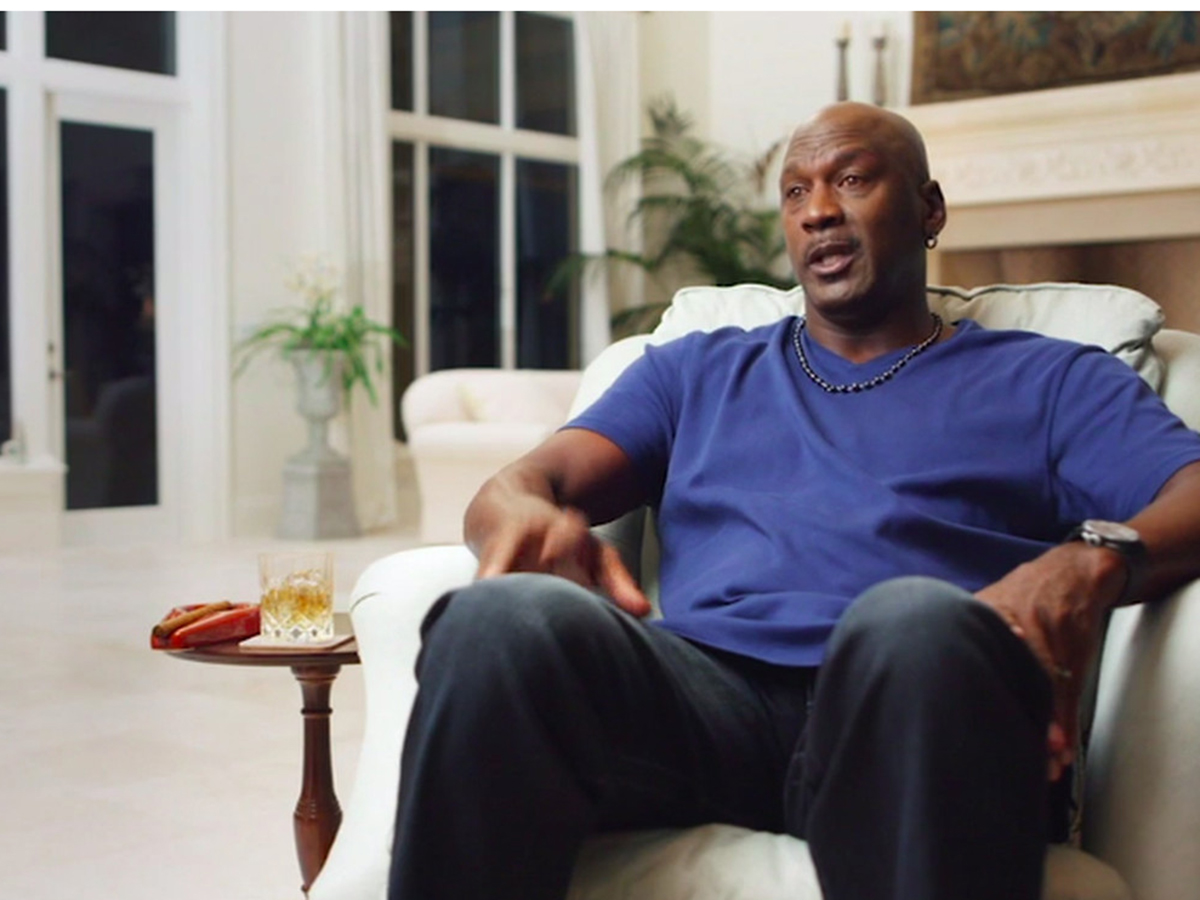By: Jonathan Fernandez, Christine Tran, SSW

The Last Dance” has captivated audiences every Sunday for the past four weeks now and last week’s episodes may have been the best yet. Episodes 7 and 8 explored a variety of topics including Michael Jordan’s father’s death, the conspiracy theories surrounding Jordan’s abrupt retirement in 1993 and his competitive nature. Below are our biggest takeaways from the seventh and eighth installments of “The Last Dance.”
Episode 7
– How much Michael Jordan’s father inspired him throughout his life
In the beginning of Episode 7, Jordan revealed that on the night the Bulls won the 1993 NBA Finals, only him and his father knew that Jordan had probably just played his final basketball game. His father, James Jordan, was later murdered on July 23, 1993, after he pulled over on the side of a highway to take a nap. The murder of his father deeply affected Jordan emotionally and psychologically; throughout the documentary, viewers were able to get some insight into Jordan’s relationship with his dad and how Jordan considered him not only a father, but a best friend.
Jordan’s desire to pursue baseball was largely inspired by his father. When he expressed interest in retiring from basketball, his dad did not hesitate to support him. Jordan shares a story about when he was suspended three times in ninth grade and how his dad said that if he was going to continue down this path, he could forget about sports. This quickly set Michael Jordan straight because he could not imagine his life without sports, a love that he inherited from his father. Along with his mother, his father was his biggest supporter who attended almost all his games and was his voice of reason.
Seeing Michael Jordan talk about his late father showed a vulnerable side that the public is not used to seeing from the larger-than-life basketball player. After the death of James Jordan, certain media outlets went as far to try to connect his death to Michael Jordan’s gambling addiction. Yet, no matter how much people can speculate, this part of the episode showed us that Jordan is just a son who misses his amazing dad but is trying his best to move forward with his father’s lessons still in mind.
– Seeing the work ethic Michael Jordan brought to basketball translate easily over to baseball
Michael Jordan’s career in minor league baseball was hated on greatly by the media and his basketball fans alike. Everyone thought it was a waste of his talent and taunted him for thinking he could play baseball just because he was a genius in basketball. What was easily overlooked though was the intense work he put in to improve at the game. Jordan disregarded anything that the doubters had to say and focused on what his passion was at the time: baseball. He knew he was doing the right thing because it was what he wanted and what his father wanted for him.
Just like with basketball, Jordan let the hate he received serve as fuel to work even harder. Mike Barnett, the Birmingham Barons’ hitting coach, even said that Jordan’s work ethic was “the best he had ever been around.” Jordan would come in early in the day, after regular batting practice and even before and after games to practice batting. He improved rapidly and reached a promising .202 batting average. If he continued at that pace, Jordan would have most likely made it to the major league.
Even though Jordan was unspectacular at baseball, viewers can clearly see that the mentality and mindset that made Jordan a champion in basketball greatly helped him out in baseball. He did not let being a rookie all over again and being behind other players discourage him, if anything it only pushed him to work harder to catch up.
– Scottie Pippen showing his true colors when he refused to reenter the game
In the 1994 Eastern Conference Semifinals, the New York Knicks had a 2-0 lead over the Chicago Bulls. In Game 3, the Bulls had an opportunity to win the game if they were able to make one last shot with 1.8 seconds to go in the fourth quarter. Phil Jackson, the Bulls’ coach at the time, set up a shot that would end with Toni Kukoc making the game-winning basket. Scottie Pippen was angry because he believed that he was the one who should have been taking the shot. As a result, when the timeout ended, Pippen refused to check back in. The Bulls had to continue on without him and luckily Kukoc was able to sink the shot and win the game for the Bulls 104-102.
Yet, no one celebrated as the team headed back into the locker room. When Jordan retired, Pippen was the one who stepped up and became the prime motivator for the team. In their first season without Jordan, Pippen led the Bulls in scoring, assists and blocks, averaging 22 points per game while shooting 49.1% from the field. He was the guy that the team looked up to and it was evident in their reactions how disappointing it was for Pippen to let them down. This moment really attested to Pippen’s impact on the team, something that is often not acknowledged in the shadow of Jordan’s greatness.
This incident also gave the audience more insight into Pippen’s true character because even years later, his teammates still stated how it was so unlike him to act like that. Even Jordan himself said this was something that Pippen would never live down, but in Pippen’s interview, while he does express regrets, he also says he would still make the same choice. This contrast is especially interesting because Jordan was the one that everyone on the team was scared of, but Jordan acted the way he did because he wanted the team to improve and win together. While on the other hand, Pippen was adored by his teammates, but showed on several occasions in the documentary how incredibly selfish of a player he was.
Episode 8
– The archival footage created some of the better moments in this episode
Early in the episode, the documentary tells the story of Jordan’s Bulls dropping Game 2 of the Eastern Conference Semifinals against the Charlotte Hornets and former Bull B.J. Armstrong. In Game 2, Armstrong made a big shot down the stretch to give the Hornets an insurmountable lead with only 17 seconds remaining. After hitting the shot, Armstrong yelled, jumped and swung his arms wildly in celebration.
A few minutes later we see Jordan sitting in his locker, swinging a baseball bat in one hand and holding a lit cigar in the other. Someone asks him if he is upset over Armstrong’s over-the-top celebration and Jordan responds by saying it’s easy for opponents to talk trash when they’re up by five or more points as opposed to when it’s zero-zero. This is an especially enjoyable scene because he says this while smoking the cigar and swinging the bat with both hands which is reminiscent of an old school mob movie.
Another memorable moment in this episode created by the archival footage came after Jordan won his fourth ring in 1996. It was Jordan’s first ring since his father’s murder and it was especially painful for him because the Bulls closed out the Seattle Supersonics on Father’s Day.
While the footage of an emotional Jordan lying on the locker room floor after the victory is not new to basketball fans, the documentary found and added the audio of the moment which added a layer of empathy for those who had previously seen the clip. Everyone watching the documentary could relate to the pain of losing someone they cared about and the audio of Jordan sobbing loudly struck a chord with many in the basketball community.
– MJ’s “I’m Back” moment is often overly romanticized
There is a common misconception that once Jordan put out his famous “I’m Back” press release and made his return to the NBA more than halfway into the 1994-95 season, he was in peak shape and the team immediately went back to its winning ways — but that was not the case. The Bulls were a .500 basketball team at that time and they were not looking as good without Jordan as they had the previous season. When MJ did come back he chose to wear number 45 instead of his iconic 23. It became clear he was not playing like number 23.
The documentary highlighted this when it showed lowlights of his first game back against the Indiana Pacers, who his Bulls ended up losing to in overtime, 103-96. After showing the score, the doc made a point to post Jordan’s shooting numbers; he finished with only 19 points on 28 shots. What the documentary did not show was that he only averaged 26.9 points per game on 41% shooting, which would be great for any other player but was well below MJ’s standard of greatness.
The “Last Dance” went on to show how the Bulls lost to the Orlando Magic in the Eastern Conference Semifinals of the 1994-95 playoffs and how vulnerable MJ was during this season. Down the stretch of game one MJ had the ball in his hands with 18 seconds left on the clock, but instead of coming through as he had so many times before, Nick Anderson, a shooting guard for the Orlando Magic, stripped him and told reporters after the game, “Number 45 doesnt explode like number 23 used to. Number 45 is not Number 23. I could not have done that to Number 23.” The late game turnover combined with an errant pass thrown the possession after and an airball in a clutch game six moment changed the way people thought about him. Jordan no longer had that aura of invincibility. He was not in good enough basketball shape that season after being away playing baseball for a year and a half. The Bulls lost to a Magic team that included former Bull Horace Grant, Penny Hardaway, Shaquille O’Neal (an overall better team that year).
– How MJ would search for different things to keep himself motivated
In Episode 8 there were a couple stories of Jordan searching for things to keep himself motivated, and as we found out, when he could not find anything to get his competitive juices flowing, he’d make stuff up. The story the documentary tells takes place on a mundane night in 1993 when the Bulls took on the Washington Bullets. Jordan struggled throughout the game while Bullets shooting guard LeBradford Smith was having the game of his life and finished with 36 points. MJ said that after the game as Smith was walking off the court he put his arm around Jordan and said, “Nice game Mike.”
Jordan swore to get vengeance on Smith by scoring 36 in the first half in their next game against the Bullets and as always he came through and did exactly that. The more interesting part of this story is that years later, Jordan came out and admitted he had fabricated the story of Smith taunting him to motivate himself.
The fact MJ would make up these scenarios and take the slightest of slights personally just to keep himself motivated and aggressive is a testament to his competitiveness and is unlike anything I have ever seen.






